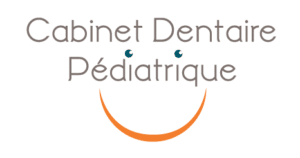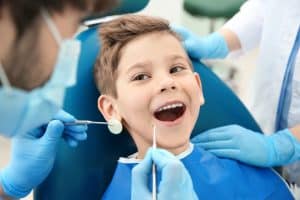The appearance of baby's teeth is an event. Although temporary, these milk teeth are essential to the child's good health. It is therefore important to take care of them. In the following lines, we explain how to preserve a baby tooth as long as possible with the help of simple reflexes and gestures.
How to keep a baby tooth healthy?
Pediatric oral surgeon number of milk teeth of a child is less than the number of permanent teeth. However, it is important to keep the milk teeth healthy. To do this, children should be encouraged to brush their teeth regularly (at least twice a day from the age of 2), while making sure that the fluoride content of the toothpaste used is appropriate.
In addition, from a very young age, it is important to pay attention to the drinks given to the child and to avoid snacking. Giving him a bottle of milk, fruit juice or soda is not recommended before bedtime. To avoid cavities in the bottle, it is preferable that the child limit himself to water.
Finally, it is important to remember that a cavity is the result of a progressive destruction of the tooth due to a bacterial disease, and is contagious. At birth, the child's mouth does not contain any bacteria. Therefore, parents must avoid transmitting their microbes to their child (by using the same cutlery, for example).
When should a baby tooth be removed?
Sometimes it is necessary to extract the child's milk teeth, especially if they do not fall out on their own. As a general rule, the milk teeth can be removed effortlessly thanks to the particularity of their rootbut there may be exceptions.
Typically, the first case that explains the need to remove a baby tooth is the formation of an abscess. To avoid any risk of infection, it is preferable to remove the temporary tooth to preserve the underlying germ that will later become the permanent tooth.
Otherwise, it happens that a baby tooth cannot be resorbed, forcing the permanent tooth to come out crooked. By the same logic, a permanent tooth that decides to change its course before emerging would present future complications. For all these reasons, milk tooth extraction is recommended.
Why keep your baby teeth once they've fallen out?
Milk teeth contain a huge amount of stem cells, cells that can fight against many diseases and cancers (stroke, diabetes, leukemia, quadriplegia, etc.).
If the child's milk teeth are preserved, it is therefore possible to use the stem cells they contain for future cellular therapies that may save the child's life, if necessary.
However, in order for the stem cells to be intact, the collection must be performed before the milk tooth falls out naturally. In addition, the tooth must be stored at a temperature of -190°C.
In France, this operation is forbidden. But it is not in Switzerland where conservation banks offer the conservation of milk teeth for the sum of 2 250 €.
Why are baby teeth so important?
The age at which baby's teeth appear is variable, but they usually start to grow in around 6 months. From that point on, it is important to keep your baby teeth healthy.
In fact, baby teeth play a double role: first, they serve as space maintainers for the permanent teeth, and second, they stimulate bone growth.
Not to mention that each milk tooth has a role, a function: cutting, shredding, crushing, grinding, etc.
If a baby tooth fails to perform its function, the growth of the underlying permanent tooth will be impaired (stunted growth in particular).
In addition, it is important to remember that milk teeth are an important part of a child's nutrition. Through chewing, the child can easily swallow the food he or she ingests, which is a source of vitamins, minerals, protein and fiber.
Furthermore, the child's first milk teeth are decisive in the development and acquisition of language. Without them, the child could not articulate or pronounce certain targeted sounds.
If you would like to learn more about baby teeth, please see the following articles:


